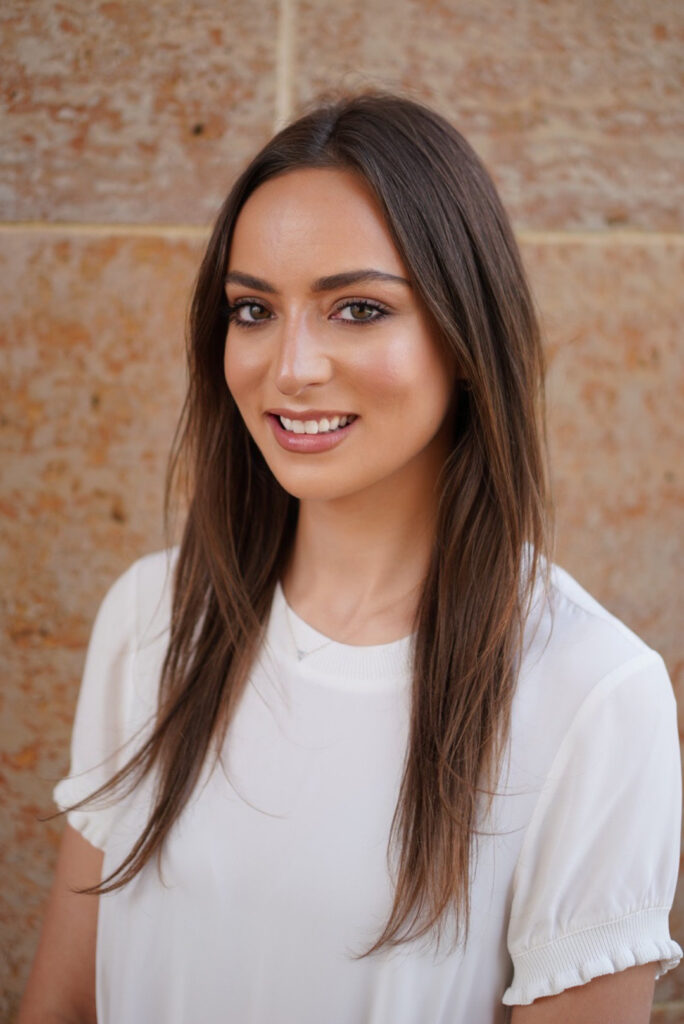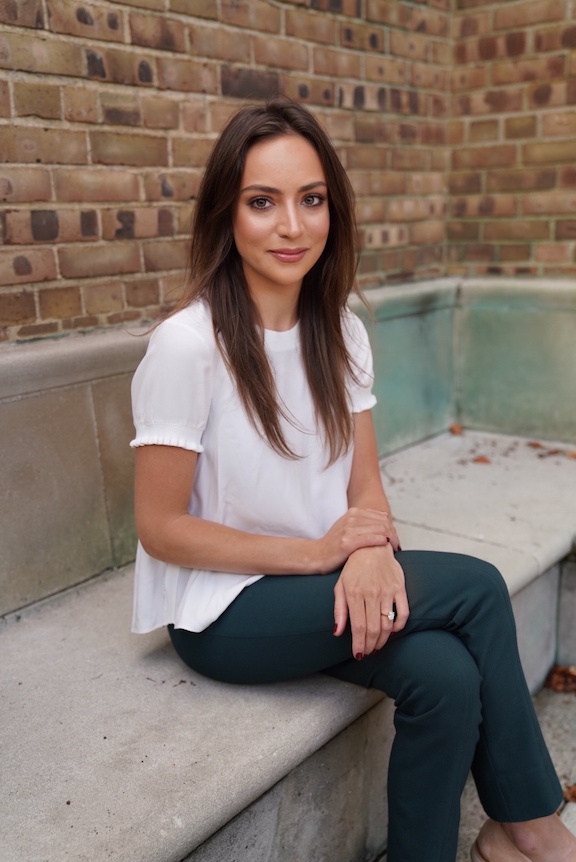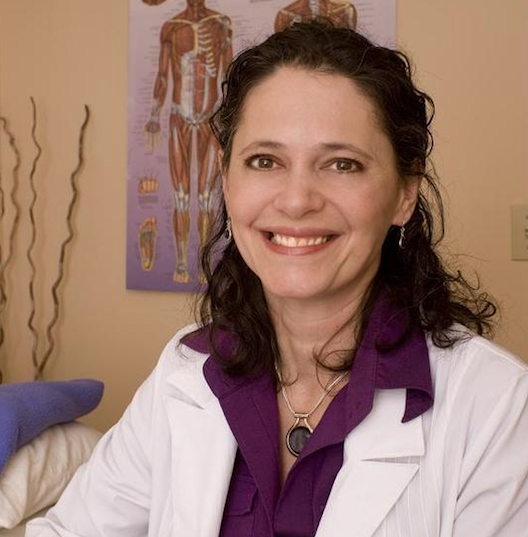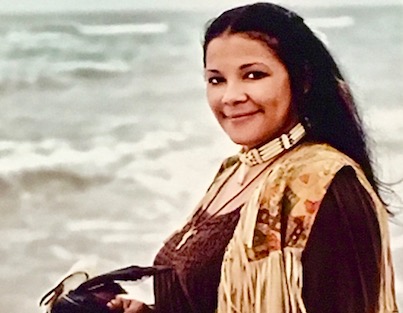Dr. Serena LoDuca completed her Doctorate of Acupuncture and Chinese Medicine at Pacific College of Health and Science in Chicago, Illinois. She is one of the only doctors practicing in the Birmingham/Bloomfield Area, Michigan. Dr. LoDuca is national board certified in acupuncture and Chinese herbal medicine by the National Commission for the Certification of Acupuncture and Oriental Medicine (NCCAOM) and is state licensed in Michigan. Dr. Serena LoDuca has extensive experience in pain management, whether it is muscle-skeletal, neurological, and/or emotional. She is passionate about educating and empowering her patients by giving them the tool to heal themselves and stay healthy. Traditional Chinese Medicine nutritional counseling, lifestyle habits, and meditation are all a prominent part of her practice.
Welcome, Dr. Serena LoDuca L.Ac, DAM! Thank you for joining us for Acupuncturist of the Month!
So, how long have you been practicing acupuncture for, and what are your specialties?
I have been practicing acupuncture for about four years, give or take. I love sports medicine and neurology, and that is mostly what I see in my practice. I passed boards during the COVID lock down, so consequently I saw a lot of long haulers in my practice. This ended up transitioning into the complicated and rare health conditions such as Ehlers-Danlos syndrome, epilepsy, and Epstein Bar.
What inspired you to become an acupuncturist?
Before acupuncture I was getting my masters in Speech and language pathology. During that time, I discovered that I was tone deaf; you cannot be a speech and language pathologist if you are tone deaf. So, I was lost, and did not know what to do with my life. During this time, my Mom was getting acupuncture for an autoimmune disease, and it was helping her a lot. She convinced me to go with her to her appointment. I instantly feel in love with Traditional Chinese Medicine, and applied to school the next day. The rest is history!
Tell us more about your experience obtaining your doctorate degree in Acupuncture and East Asian Medicine at the Pacific College of Oriental Medicine. How long was your program? What strategies did you use to help maintain a balance between your studies and personal life?
My program was about four years. I would be lying if I said it was easy for me to maintain balance between my studies and personal life. I always took an extra class or two a semester, which left little time for socialization. I did get a dog, Molly, who was wonderful for me during this time. Taking her walking in Chicago by the river front was a great break from studying. I also met a lot of my friends by walking my dog. I also studied with one of my best friends, Erin Muszynski, whom is also an acupuncturist. We had a lot of fun studying, and it was a great way to socialize and study at the same time.
On your journey to become an acupuncturist, what obstacles did you face and how did you overcome them?
I was constantly dealing with exhaustion while in school. This would lead to me getting sick a lot. Luckily, I always recovered quickly. I had to take time to focus on myself to keep exhaustion at bay. This is when I started meditating every day, and focusing on healthy eating habits. These changes were crucial for my mental and physical health, and I was able to graduate healthy and happy.
You have an in-house herbal pharmacy, that’s amazing! Do you find patients to be receptive to herbal medicine and taking advantage of the in-house herbal pharmacy?
I do not offer herbs to every patient, because I am aware not all patients will take them on a regular basis, for example my back pain patients. However, since I am often the last resort when it comes to their healthcare, my patients will try anything to get better. These patients are open to trying herbal formulas. Once they experience the benefits they will often come back for herbal refills.
Share a recent success story you had with a patient. What acupuncture points, herbs, or other interventions (meditation, yoga, nutrition, etc) did you use to help them achieve results?
A patient called me one day and asked for an initial acupuncture and Traditional Chinese Medicine appointment that day. I do not usually allow this due to the amount of time required for multiple modalities and scheduling difficulties, however I could hear the pain in his voice, and made time for him. During his initial consult he told me he had been to the hospital three times due to pain caused by Epstein Barr. Each time he went to the hospital he was told there was nothing that could be done for him, and they sent him home. His whole body felt heavy, and was throbbing. He had stabbing pain in his chest, bone pain, hair loss, weight loss, and exhaustion. His pulse was weak and forceless, and his tongue was swollen and pale with a thick yellow coat and distended sublingual veins. I also noticed that his lips where purple. I diagnosed him with Bi syndrome. His pattern was Wind-Cold-Dampness with severe Blood stagnation.
Acupuncture:
Shen Men left
SP-21 bilateral – Whole body pain
LU-1 bilateral – For fullness in the chest, and to clear heat in the chest
LI-4 bilateral – To move Qi and blood, restore yang
PC-6 bilateral – To move blood and clear heat in the chest
Ren-6 – Tonify yang, regulate Qi, harmonies blood, rescue collapse of yang.
GB-34 bilateral – Benefit the sinews and joints, alleviates pain
GB-39 bilateral- to Benefit the sinews and bones, dispel wind-damp, alleviate bone pain
SP-5 bilateral- Resolve dampness, benefit sinews and bones
SP-3 bilateral – Tonify Spleen, resolve dampness to address pain of the bones, move qi in the chest and abdomen, and dispel wind- dampness
GV-20 – Raise yang and nourish the sea of marrow
I gave him Huo Ji Sheng Tang + Di Long, +Hong Hua, +Fu Zi.
The following week he came back for his follow up appointment and told me that after his last appointment he felt the best he had in years. He was able to shovel snow, which he was not able to do in the past. Currently he is living pain and symptom free. He talks about his
experience on his podcast 2 Hip Hop Sensei’s and a Casual, episode Who Runs The World…Girls!
What makes you feel inspired about acupuncture?
Many patients that come into my clinic are desperate for pain relief. When a person in pain walks out of a treatment room feeling great and hopeful for the future, I am so happy for them. Making a difference in their lives gives me meaning in life and is what makes me love my job. A person in pain is also not their true selves, they are just in survival mode. As their pain alleviates, I get the opportunity to meet the person under the pain. I am honored to help these patients and get to know who they truly are.
Looking back, what advice would you have given to the younger version of yourself, who was just getting started in this profession?
You have no experience, and no one will hire you because of it. But if you put yourself out there someone will give you a chance. I am so thankful for Maria (a massage therapist) who gave me my first acupuncturist job. Although I traveled 45 minutes every day to work, Maria taught me how to run a business and market myself, I am extremely grateful to her.
What keeps an acupuncture practice going?
Always remember that your patients are your boss. If you listen to your patients, they will tell you what they need from you. Don’t focus on your expenses and profit. Focus on our patients because the more you help them the more they will help you build your practice.
What are specific roadblocks to watch out for as a new acupuncturist?
If you are like me, you love Traditional Chinese Medicine and you think it has all the answers. Unfortunately we do not. Don’t be afraid to say you don’t know or to refer out. People with serious health conditions will walk into your clinic, make sure they seek conventional treatment as well. Its ok to not have all the answers, but it is more important that your patients get the care they need. You will not lose the patients you refer out; they will appreciate your concern and acknowledgement of the limits of your scope.
We have all occasionally had a patient come into our practice who is upset, frustrated, and a little angry. Maybe it’s from work, being stuck in traffic, or life in general – we have all been there! What advice would you give to fellow acupuncture students and/or colleagues on how to deal with situations like these?
Be kind! They are not usually mad at you, even if it seems that way, so always be kind. These people asked you for help, so listen to them as they will tell you what they need from you. I have been blamed for almost everything! Consider that agitation is just part of their pattern, which you know how to treat. So be kind, listen, and help.
What are your favorite acupuncture points, and why?
GB34- I love it because it’s great heavy hitter! It is the main point for disorders of the sinews, so I needle it on every patient that comes in with tight and/or stiff muscles and joints. It also spreads liver qi and benefits the lateral costal regions. So, it is wonderful for woman with menstrual cramps in that area.
GB41- I find it to be very powerful for vertex headaches, it pulls all the excess stagnant Qi in the head downwards. I also find it useful for foot pain and foot cramps, which I see a lot of.
LV13- I think we all see a lot of liver and spleen disharmony due to our demanding culture. This point is wonderful for harmonizing the liver and spleen.
ST3- I strongly believe this point is underused. I use it for nasal congestion with facial pressure, Bell’s Palsy, and seasonal allergies. It eliminates wind and is a local point.
SP6- Great for gynecology because it moves blood and regulates menstruation. It also wonderful for bladder disorders with blood stagnation and/or dampness. Plus, it calms the Shen for anxiety and insomnia.
PC6- Wonderful for epilepsy, poor memory, anxiety, and insomnia. It is a great point that regulates the heart without having to needle the heart channel.
GB20- It is great as a local point for neck and shoulder pain. However, it is also wonderful for wind strikes, memory loss, epilepsy, nasal congestion, and headaches. This point can be used for so many conditions and I think it is one of the best points for eliminating wind.
Ren 4- It’s a yin powerhouse. It tonifies and nourishes the kidneys, lungs, spleen, and original Qi. Wonderful for fertility, weakness and pain in the lumbar region and lower limbs and prolapses.
Tell us about some herbal formulas and foods you find yourself consistently recommending to your patients, friends, family, and colleagues. What makes these herbs/foods so helpful?
The most common thing I tend to recommend is to cut out dairy and cold foods as much as possible. I don’t expect anyone to completely cut anything out, but I do ask them to remember that moderation is key. I also recommend that patients meditate once a day before bed, especially if they are struggling with anxiety or insomnia. Ba Zhen Tang is one of my favorite formulas. I tend to frequently use this formula as a base for any general blood and qi deficiency pattern.
Sometimes, the best resource for improving our skills is by learning from the other acupuncturists we meet along our professional journey. What is one thing you learned from a fellow acupuncturist or holistic practitioner that has helped you in your professional growth, or in your care for patients?
I was told by another acupuncturist to be careful not to diagnose patients with your pattern and not their own. This made me go back in my patient files and see how often I diagnosed patterns. I found that I frequently recommending herbal formulas and foods that I needed. This helped me take a step back and really evaluate my system. In the end I became a better listener and more methodical in my evaluations. Now when I look back on my patient files, I see that I am infrequently projecting my pattern onto my patients.
The COVID-19 pandemic has without a doubt had a significant impact on the acupuncture practice community and small businesses alike, and while it’s on the mend, we are still navigating through the new normal as acupuncture providers. How has COVID-19 changed your practice? Have you added or removed any services due to the pandemic?
Since I graduated during lockdown, I had a lot of time to study for boards. So, I was able to obtain my license relatively quickly after graduation. Once the lockdown was lifted, I started working as a receptionist at an acupuncture clinic. Here I learned a lot about Covid safety, such as having patients call the office when they arrive to enforce social distancing, temperature checks, and sanitation of the rooms. When I opened my own clinic a year ago, I sanitized each room to the degree that was required during Covid. However, I am much more relaxed now about masks, social distancing, and temperature checks.
Do you have any daily habits or rituals that keep you at your “best-self”, both as an acupuncture practitioner and person?
Meditation is extremely important to me. It keeps me balanced and relaxed throughout the day. Also, every night I put my phone away and avoid any blue screens so that I can spend quality time with my husband and decompress after long days.
You offer a wide variety of cupping options! Which type of cupping do you find to be most effective and the most popular amongst patients?
I have many cupping options available in my clinic, including fire cupping. However, I find that fixed pneumatic cupping is the most effective and popular among my patients. There is less risk of unwanted side effects, and if they fall off there is no broken glass.
The kindest thing a patient said to you recently:
A patient recently thanked me for changing her life. This patient was in a lot of pain and was unable to live her life like she once had. I was able to alleviate most of her pain with acupuncture, but I also introduced her to medical doctors who helped resolve the health condition that was causing her pain.
The funniest thing a patient said to you recently:
A patient who I recently cupped went to Florida with his wife and young children. While on the beach his young daughter saw the cupping marks and asked, “Dad did you get attacked by an octopus?”.
As an acupuncturist, what are you most proud of thus far in your professional journey?
My clinic, the American Acupuncture Center, is what I am most proud of. I have been open a year now and my practice is thriving. All the late nights and hard work that I put into the American Acupuncture Center has made it a warm and welcoming place for people to heal.
If you could have a billboard with anything on it, what would it be and why?
“It’s ok to say no!” You don’t need to do everything for everyone, and you cannot do it all. I think a lot of people need to remember that you don’t have to make everyone happy, and you probably won’t anyway.
What is your definition of success?
To be content. I don’t need to be constantly happy, and I don’t need to make a lot of money. I just want to be in a position where I don’t have to worry about finances and can continue spending time with loved ones and do what I love, Traditional Chinese Medicine.
If you could have one superpower, what would it be and why?
Teleportation because I would love to see more of the world. You would also save money on flights and no travel time.
*Rapid fire questions! *:
-Morning or night? Morning
-Tea or coffee? Coffee
-Sun or moon? Moon
-Cupping or Tui na? Cupping
-Yin or Yang? Yin
-Meditation or exercise? Meditation
-Instagram or Facebook? Instagram
-Spirit animal? Otter
Where can other licensed acupuncturists, students, and patients go to learn more about your work?
www.AmericanAcupunctureCenter.com
Instagram: @AmericanAcupunctureCenter
Facebook: American Acupuncture Center page, Dr. Serena LoDuca Lac, DACM page
Linkedin: American Acupuncture Center, Dr. Serena LoDuca



